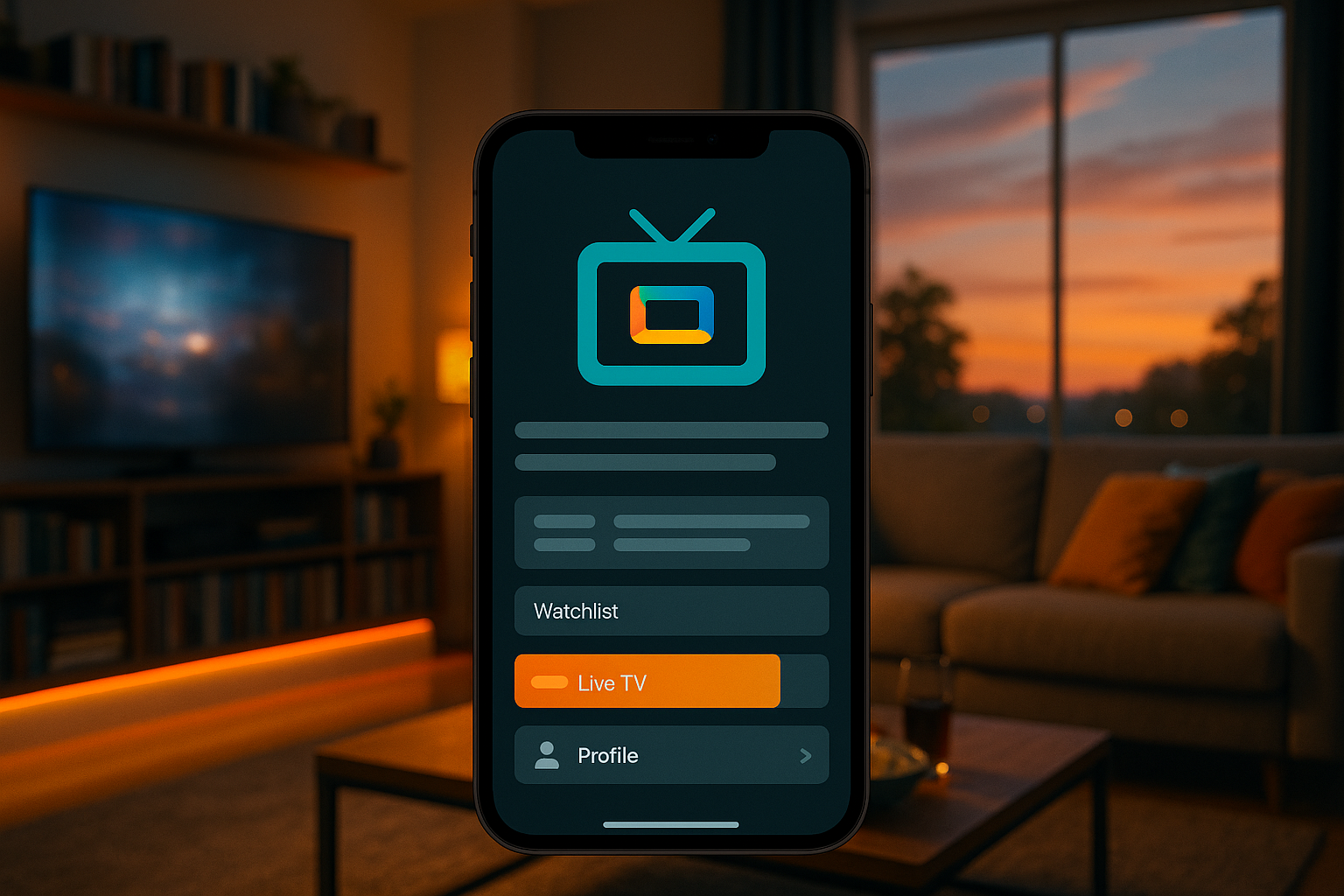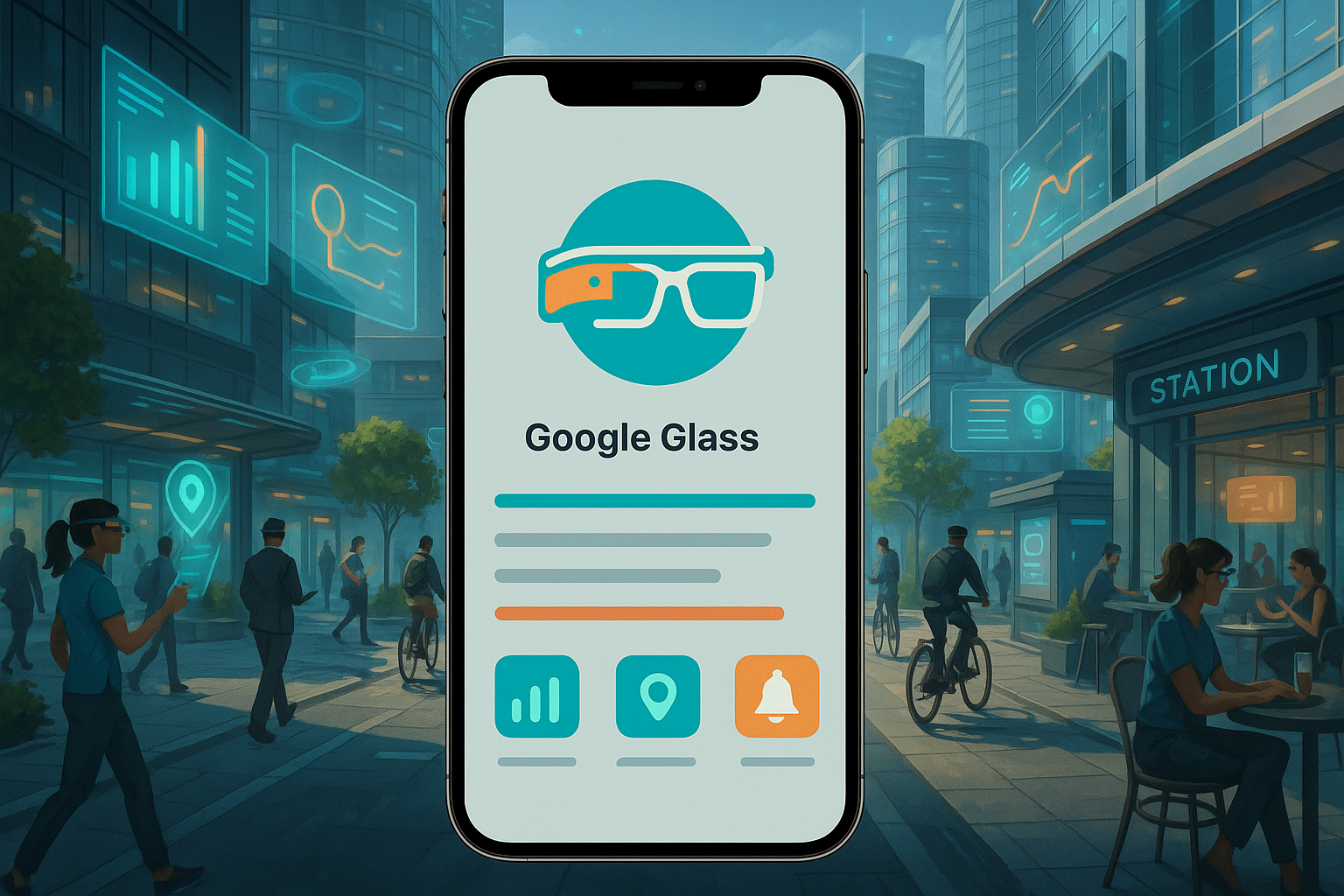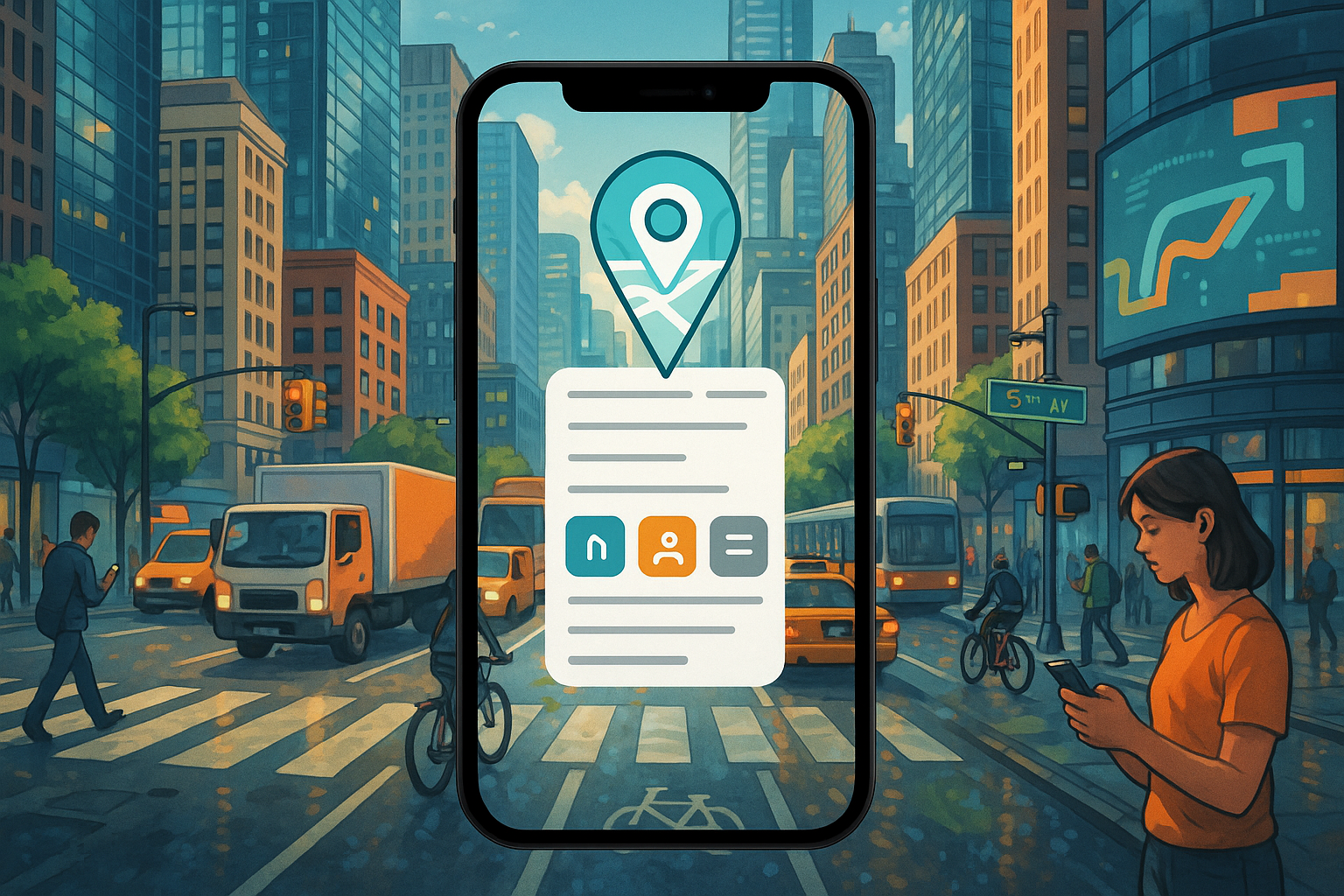Introduction
The Google TV platform, developed by Google, stands as one of the best and most expansive smart platforms available today. It offers content distributors a direct line into the living rooms of millions, aggregating over 700,000 movies and TV shows, plus more than 800 free live channels, into a single, user-friendly interface. For any business with a video content strategy, developing a Google TV app isn’t just an option; it’s a strategic imperative.
However, tapping into this lucrative ecosystem is fraught with technical complexity. The path from concept to a high-performing, approved Google TV app is paved with challenges unique to the smart TV environment—from severe platform fragmentation and stringent performance requirements to a complex and often unforgiving app store approval process. Attempting this journey with an in-house team, unfamiliar with the specific nuances of smart TV development, can lead to costly delays, frustrating rejections, and a subpar final product that fails to capture an audience.
This article serves as a comprehensive guide to understanding the landscape of Google TV app development. We will explore what a Google TV app is, delve into the significant technical hurdles that make development so difficult, and discuss the opportunities available on the platform. We will also address the crucial topic of cost and introduce the top development partners who can bring your vision to life.
As a top US AI-powered app development firm with over 20 years of experience, we at MetaCTO specialize in turning complex challenges into market-leading mobile and TV applications. We build, grow, and monetize apps, guiding our partners from concept to launch and beyond. Throughout this guide, we will share insights gleaned from launching over 120 successful projects, demonstrating how partnering with an expert firm like ours can de-risk your project and accelerate your path to success on the Google TV platform.
What is a Google TV App?
Before diving into the complexities of development, it’s essential to understand what Google TV is and what a modern app on the platform can achieve. Google TV is more than just an operating system; it’s a content aggregation experience. Developed by Google, the platform is designed to bring together movies, shows, live TV, and apps from across a user’s subscriptions and free services into one organized home screen.
A Google TV app, therefore, is a portal that integrates directly into this rich, interconnected ecosystem. It’s not a siloed application but a contributor to a unified user experience. Users can discover content from your app through Google TV’s powerful, personalized recommendation engine and universal voice search, which scours all available services to find what they’re looking for.
The platform sets a high standard for user experience, offering features that a modern app is expected to support:
- Vast Content Library Access: The home screen integrates content from major players like Netflix, Disney+, Prime Video, and YouTube TV, meaning your app will be positioned alongside the industry’s best.
- Live and Free TV: Google TV organizes over 800 free channels, setting a user expectation for seamless integration of live and on-demand content.
- High-Fidelity Playback: The Google TV Streamer supports stunning 4K HDR with Dolby Vision and immersive Dolby Atmos audio. Apps are expected to deliver high-quality video streams that leverage these hardware capabilities.
- Smart Integration: Beyond media, Google TV is a smart home hub. The Home Panel allows users to view security cameras or control lights directly from the TV screen. Apps can potentially tap into this connected environment.
- Seamless Casting and Control: Users can cast content from Android and iOS devices, transfer media files, display Google Photos, and even control music on speaker groups, all from the TV interface.
- Voice-Powered Discovery: Voice search via Google Assistant is a core feature. If you choose to enable voice search in your app, integrating Google Assistant is a must.
Developing a Google TV app means building a piece of software that can gracefully exist within and contribute to this sophisticated, feature-rich environment. It must be discoverable, performant, and deliver an experience consistent with the high expectations set by the platform itself.
Reasons It Is Difficult to Develop a Google TV App In-House
While the opportunity on Google TV is immense, the in-house development journey is notoriously difficult. The challenges extend far beyond typical mobile app development, requiring specialized knowledge and a significant investment in resources. An agency like ours, with deep technical expertise and a focus on custom mobile app development, is structured to absorb this complexity, allowing you to focus on your content and business strategy.
Here are the primary reasons why building a Google TV app in-house is a significant challenge.
1. Severe Platform and Hardware Fragmentation
The single greatest challenge in smart TV development is fragmentation. The term “Google TV” itself is part of a broader ecosystem that includes Android TV. Content distributors must build apps that function flawlessly across a dizzying array of devices from different manufacturers, each with its own hardware specifications.
- Disparate SDKs and APIs: Different devices mean different Software Development Kits (SDKs) and Application Programming Interfaces (APIs). These are not static; vendors frequently update them, creating a moving target for developers. An in-house team must dedicate constant effort to scrutinizing documentation for every single target platform, ensuring the app remains compliant and functional after each update.
- OS and Hardware Mismatches: New versions of the smart TV operating system are not always compatible with older TV hardware. This can lead to a critical problem where your app, updated to support new OS features, breaks or fails on a significant portion of your user base’s older televisions. This isn’t a rare edge case; it’s a central planning consideration.
To solve this, a developer can’t simply build for the latest model. They must meticulously define a matrix of supported OS versions, test the feasibility of supporting very old hardware, and often write custom code to ensure the app is backward-compatible. This process of graceful degradation—where the app intelligently disables features that aren’t supported on older hardware—is complex and time-consuming. It requires a level of architectural foresight and rigorous testing that can overwhelm teams new to the space.
2. Demanding Performance and Optimization Requirements
Unlike powerful PCs or even modern smartphones, televisions are fundamentally low-memory, resource-constrained devices. Users, however, expect a fast, fluid experience. This gap between hardware limitations and user expectations creates a major hurdle.
- Frontend Performance: A sluggish user interface is a primary reason for user churn. To improve frontend performance, developers must go beyond standard web practices. This includes simplifying the UI and, in some cases, using advanced techniques like React renderers with canvas instead of traditional HTML DOM elements. However, this is a double-edged sword: canvas itself can reduce performance on older TVs. Making the right technical choice requires experience and device-specific testing. Omitting complicated CSS styles like shadows or 3D effects is another common optimization, forcing a trade-off between visual flair and raw speed.
- Backend Performance: A poor video streaming speed is a common reason for an app’s rejection from the app store. Backend performance is critical. This involves more than just efficient code; it requires implementing robust Content Delivery Network (CDN) set-ups to ensure fast content delivery to users globally.
- Performance Profiling: Because TVs are low-memory devices, developers must pay particular attention to performance profiling. This is a deep diagnostic process to detect memory errors, CPU limitations, uninitialized memory, and improper memory allocation or deallocation. It’s a specialized skill essential for building a stable and responsive app, and it’s a core competency of an experienced development agency.
3. A Complex and Rigorous Testing Process
The fragmentation and performance challenges culminate in an incredibly complex testing and quality assurance (QA) process. You can’t just test on one device and hope for the best.
- The Device Matrix: Effective testing starts with defining a matrix of platforms and devices to cover. This includes deciding which real-life devices are essential for testing. Real hardware is non-negotiable for verifying features like video stream quality and custom navigation, which often behave differently than on a simulator.
- Emulators vs. Real Devices: While real devices are key, testing on every single model is impossible. Emulators are handy for the rest of the scenarios, especially for tasks like capturing screenshots, which TVs are not adept at. However, developers must be strategic. Debug connections can be unstable and are often lost under high loads when testing on real devices. The best practice, which we follow, is to use real devices only to test functionality that cannot be verified on emulators and to capitalize on automated parallel testing across various emulators to speed up the QA process.
- Technical Testing Nuances: The QA process involves specific technical tactics. For example, developers must avoid sending large messages (over 1,000 symbols) via WebSockets, as this can crash or slow down the app on certain hardware. The solution is to break large messages into smaller chunks. This is the kind of hard-won knowledge that comes from experience.
A typical smart TV development project requires a combination of both manual and automated testing, representing a massive volume of work that can be a significant bottleneck for an in-house team.
4. The Strict App Store Approval Process
Finally, after navigating all the development and testing hurdles, your app faces the final gatekeeper: the app store approval process. This is not a mere formality; rejection is common.
To even submit an app, developers must provide a complete application map that details all functional capabilities, navigation scenarios, and other UX components. The app must then pass a substantial test checklist executed by the platform’s review team.
Frequently, some of the “must-have” points are missed by inexperienced teams, leading to an immediate rejection. As mentioned, poor video streaming speed is a common reason for failure. Getting rejected means going back to the development and testing phases, losing valuable time and money. Partnering with a firm that has a proven track record of successful submissions, like MetaCTO, dramatically increases the odds of first-pass approval. We understand the unwritten rules and common pitfalls, ensuring your app is prepared for scrutiny from day one.
Use Cases and Opportunities for Your Google TV App
The Google TV platform is not monolithic; it supports a diverse range of applications that leverage its core features in unique ways. Rather than thinking in terms of rigid “app types,” it’s more productive to consider the use cases and opportunities your business can pursue by integrating into the Google TV ecosystem. The platform’s success is built on aggregating content from a wide array of apps like Netflix, Disney+, Max, and Apple TV+, proving its flexibility.
Here are some of the primary opportunities for your app on Google TV:
- On-Demand Video Streaming: This is the most common and powerful use case. If your business has a library of movies, TV series, documentaries, or educational videos, a Google TV app provides a premium, “lean-back” viewing experience. Your content can be surfaced through Google TV’s recommendation engine, placing it in front of users actively looking for something new to watch.
- Live TV and Events: For broadcasters, news organizations, or sports leagues, a Google TV app can deliver live streams directly to the audience. With Google TV already aggregating over 800 free live channels, users are accustomed to browsing and watching live content, making it a natural fit for your service.
- Fitness and Wellness: The large screen is perfect for follow-along workout routines, yoga sessions, or guided meditations. By casting from a phone or through a native TV app, you can provide an immersive fitness experience that a small phone screen can’t match.
- Smart Home Control: For companies in the IoT and smart home space, a Google TV app can act as a visual dashboard. Imagine a user adjusting their smart lighting, checking a security camera feed in a picture-in-picture window, or activating a “movie mode” scene, all without leaving the TV interface.
- Photo and Media Sharing: While Google Photos is the native solution, there is room for specialized apps that offer unique ways to display and share personal media. A beautifully designed app could curate family videos or professional portfolios on the biggest screen in the house.
- Music and Audio: With the ability to add a TV to a speaker group, Google TV can be the centerpiece of a home audio setup. An app for a music streaming service, podcast network, or audiobook library allows users to control playback directly from their remote.
The key to success is to leverage the platform’s strengths. An app that supports 4K HDR streaming, integrates with Google Assistant for voice search, and provides content that feeds the recommendation engine will feel like a native part of the Google TV experience, driving discovery and engagement. At MetaCTO, part of our process involves a deep product strategy phase where we help you identify the best opportunities and features to pursue for maximum impact.
Cost Estimate for Developing a Google TV App
One of the first questions every stakeholder asks is, “How much will it cost to develop our Google TV app?” The straightforward answer is: there is no flat rate. Any agency that gives you a price without a deep discovery process is simply guessing. The cost of development is directly tied to the complexity and scope of your project.
The provided facts for this topic explicitly state “[NO FACTS],” which highlights the reality that a generic cost breakdown is impossible. The final investment depends on a multitude of factors that are unique to each application.
Here are the key variables that will determine the cost of your Google TV app:
- Feature Complexity: A simple app that plays a small library of videos will cost significantly less than a complex app with user profiles, personalized recommendations, in-app purchases, and live streaming capabilities. Features like integrating Google Assistant for voice search add another layer of development effort.
- Platform and Device Support: The core challenge of fragmentation directly impacts cost. The more devices and older OS versions you decide to support, the more time will be spent on custom coding for backward compatibility, testing across the device matrix, and long-term maintenance.
- UI/UX Design: A custom, highly animated, and visually rich user interface will require more design and development hours than a simpler, more utilitarian design. As discussed, complex UI can also impact performance, so this requires a careful balance between aesthetics and functionality.
- Backend Infrastructure: The cost is not just in the app itself but also in the supporting backend. This includes setting up secure servers, databases, and a robust CDN for fast video delivery. The scale of your expected user base will heavily influence these infrastructure costs.
- Third-Party Integrations: Integrating with analytics platforms, ad networks, subscription management systems, or other third-party services adds to the development timeline and cost.
Instead of seeking a vague estimate, the most effective approach is to define a clear project scope. This is where our Rapid MVP Development service provides immense value. We work with you to launch a streamlined version of your app in 90 days or less. This allows you to enter the market quickly, test your core concept, gather real user feedback, and validate the business case—all while keeping initial costs low and manageable.
To get a true understanding of the investment required, you need to speak with an expert. We offer a free consultation to dive deep into your goals and provide a detailed, transparent estimate tailored to your vision.
Top Google TV App Development Companies
Choosing the right development partner is the single most important decision you will make. The right partner brings not only technical skill but also strategic guidance, industry experience, and a proven process for navigating the challenges of the Google TV ecosystem.
1. MetaCTO
At MetaCTO, we position ourselves as the premier partner for ambitious companies looking to build, grow, and monetize applications on complex platforms like Google TV. With 20 years of app development experience and over 120 successful projects launched, we have honed a process that transforms big ideas into market-ready products efficiently and effectively.
What sets us apart is our holistic, AI-enabled approach. We understand that a successful app is more than just code; it’s the result of a sound strategy, user-centric design, and a clear path to growth and monetization. Our services cover every step of the app lifecycle:
- Validate: We turn your idea into a functional MVP in 90 days, allowing you to test the market and secure funding with a tangible product.
- Build: We handle the entire development process—from architecture and design to coding and launch—ensuring your app is robust, scalable, and delivers a seamless user experience. We are experts in handling the performance profiling, fragmentation, and backward compatibility challenges inherent to Google TV.
- Grow: After launch, we use analytics and A/B testing to optimize user onboarding, engagement, and retention, helping you build a loyal audience.
- Monetize: We help you implement the right monetization strategy, whether it’s through subscriptions, ads, or in-app purchases.
- Evolve: As your business scales, we ensure your app evolves with it, upgrading your technology stack to stay competitive.
Our deep expertise in handling complex technical requirements, such as writing custom code for legacy hardware, implementing CDN set-ups for high-performance streaming, and navigating the stringent app store approval process, makes us the ideal partner for a demanding Google TV project. We don’t just build your app; we become the technical partners you need to succeed.
2. Google
While not a for-hire development agency, Google is the ultimate authority on the platform. As the developer of the Android TV and Google TV software, their documentation, guidelines, and API requirements are the law of the land. A successful development project is contingent on a deep understanding of and strict adherence to the rules Google sets forth.
An expert development partner like MetaCTO builds their process around Google’s requirements. We scrutinize the documentation for every particular platform, follow the required guidelines meticulously when deploying an app, and provide comprehensive support for API updates. By aligning our development practices with the platform creator’s standards, we ensure that the apps we build are compliant, stable, and prepared to take full advantage of the ecosystem’s features.
Conclusion
Developing an application for the Google TV platform is a journey of immense opportunity and significant technical challenge. We’ve explored the rich, integrated experience that Google TV offers users and the high standards it sets for content, performance, and functionality. We’ve also delved deep into the formidable hurdles that developers face—navigating a fragmented landscape of devices and APIs, optimizing for resource-constrained hardware, executing a complex multi-platform testing strategy, and clearing the high bar of a strict app store approval process.
These challenges make in-house development a risky and resource-intensive proposition for many organizations. The key to success lies in partnering with a team that possesses the specialized knowledge and proven experience to transform these obstacles into a competitive advantage. An expert development agency absorbs the complexity of fragmentation, performance tuning, and QA, allowing you to focus on what you do best: creating compelling content and building your business.
At MetaCTO, we have spent two decades building, launching, and scaling successful applications for our clients. Our full-service approach, from a 90-day MVP to long-term growth and monetization, is designed to de-risk your investment and accelerate your time to market. We have the technical expertise and strategic foresight to build a Google TV app that not only gets approved but also captivates your audience and achieves your business goals.
If you have a vision for a Google TV app, don’t let the technical complexities hold you back. Let’s build it the right way, from day one.
Talk with a Google TV app development expert at MetaCTO today to start the conversation.






